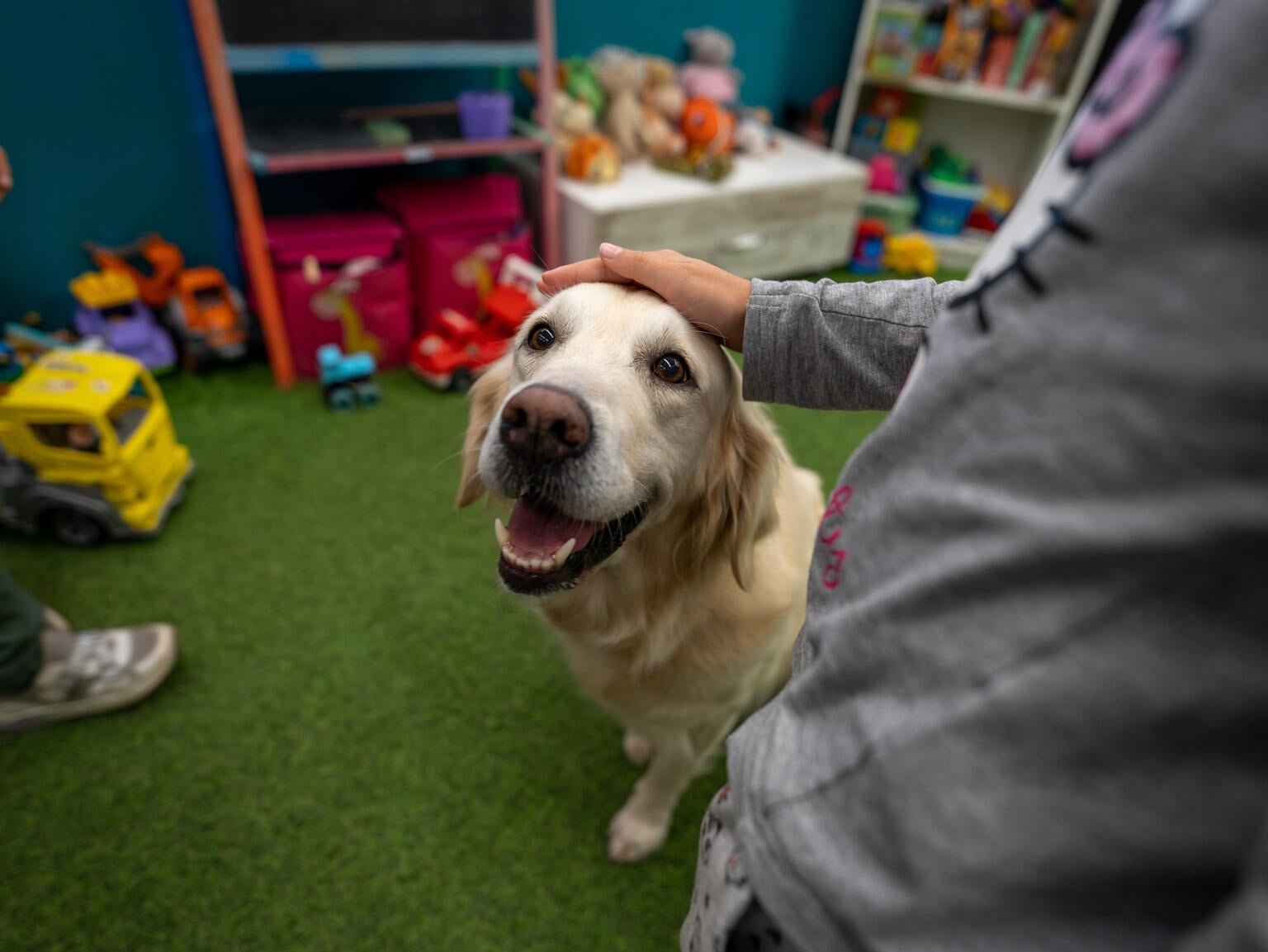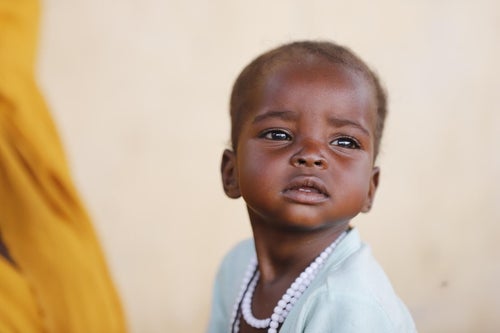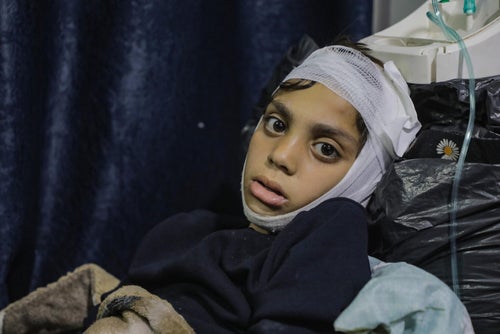Five-year-old sisters Eva and Milana are very excited when they have an appointment with their therapists in a metro station near where they live in Ukraine. Their therapists are a golden retriever called Julie and an English setter called Petra. Since the escalation of the war in Ukraine, the two dogs have been helping children to overcome stress and anxiety through play and learning.
As soon as Eva extends her hand in greeting, Julie places a paw in her palm, immediately recognising her as a friend. During the appointment, the girls join a group of children as they learn to interact with the dogs, feed them, teach them tricks and have fun together.
For an hour, the underground metro station is filled with children’s laughter and voices, distracting them from the scary sounds of sirens and explosions outside.
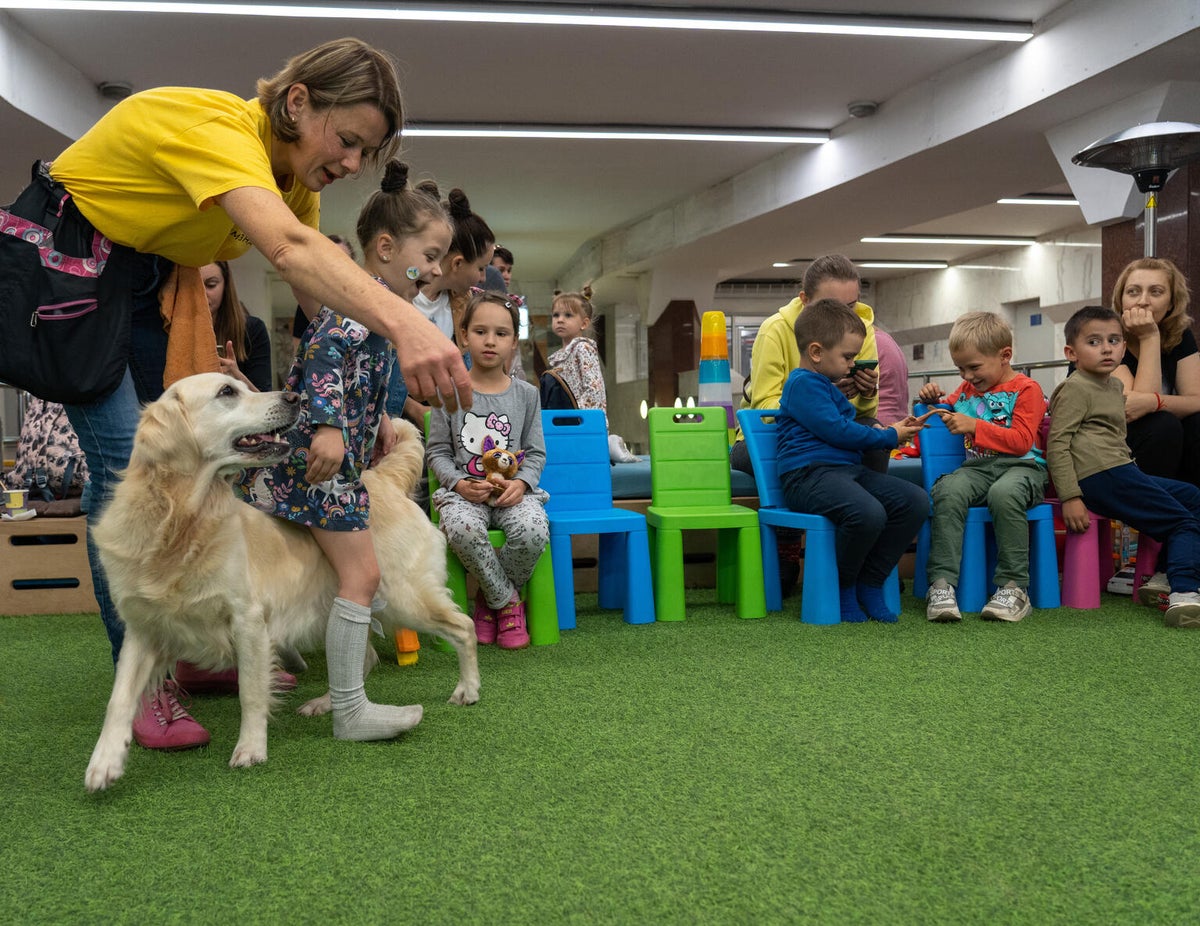
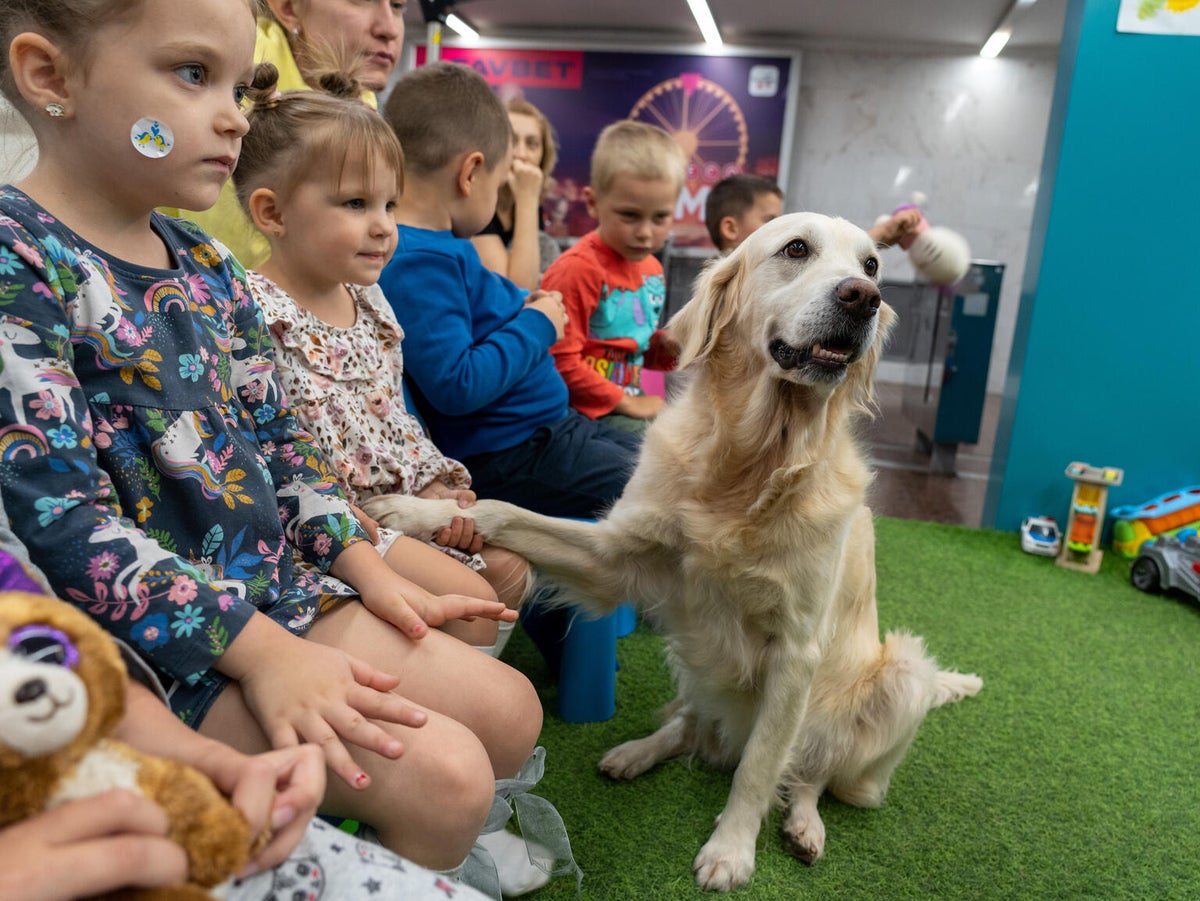
These heartwarming dog therapy classes provide children with a sense of joy, normalcy, and emotional support to children who have been through so much.
Since the escalation of the war, trainer and volunteer Natalia has been running the classes twice a week at a UNICEF-supported Spilno Child Spot. This is one of 150 centres and 50 mobile services UNICEF runs across Ukraine to connect children with health services and learning programs. They are some of the only places where children can go to escape the horrors of war.
Some of them also double as bomb shelters, which means that children no longer need to interrupt their classes and games to go to safety during air raids.
"Therapy is usually a very long process. But these classes are a quick way for a child to feel positive emotions, relax and communicate in a safe environment."
Natalia came up with the idea for the classes one day when she was taking shelter in the local metro with her family during an air raid and noticed how sad the children around her were.
"The first class was difficult both for me and my dogs,” she recalls. “Severe shelling occurred and there were a lot of frightened children. The air in the metro felt heavy because of so much tension. Our dogs were so tired that my husband and I just took the dogs out after the lesson in our arms. But the children came and thanked us for distracting them from the war.”
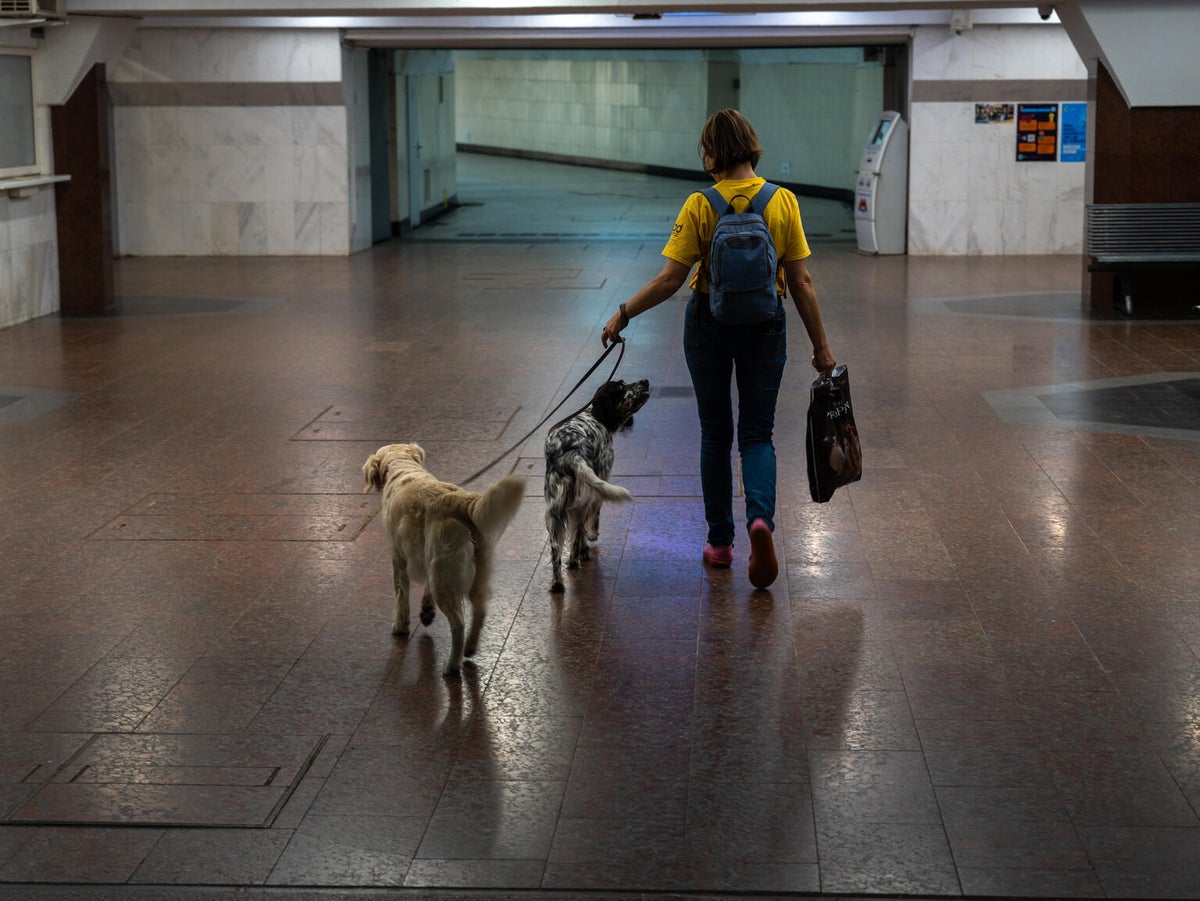
Later, Natalia joined the Spilno Child Spot team as a volunteer and started to run regular classes.
"Different children come to us – those who are afraid of dogs, those with health or developmental disorders and those who are psychologically traumatised by the war,” Natalia says. “Some children miss the pets that they lost. And they are happy to communicate with animals. These dogs are emotional support dogs.”
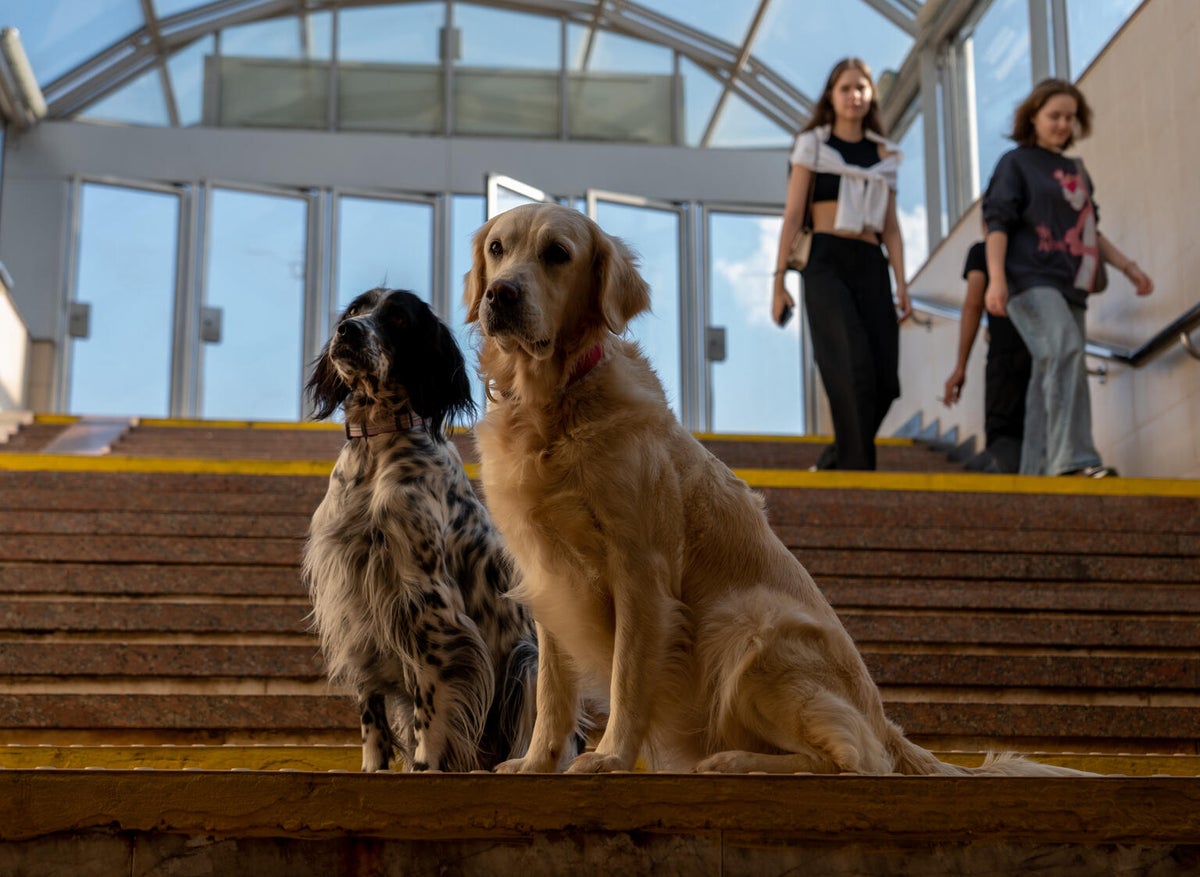
Furry friends help children process the horrors of war
Soon after the war escalated in Ukraine, Eva and Milana’s family were forced to flee to a new city after intense fighting began in the city of Kherson, where they used to live with their cats and a dog.
"The dog's name is Snizhok (‘snowball’) because he is snow-white and fluffy,” Eva says, sadly.
While the girls miss their pets back home, being able to interact and play with the dogs during the therapy classes at the Spilno Child Spot helps the girls to process their sadness.
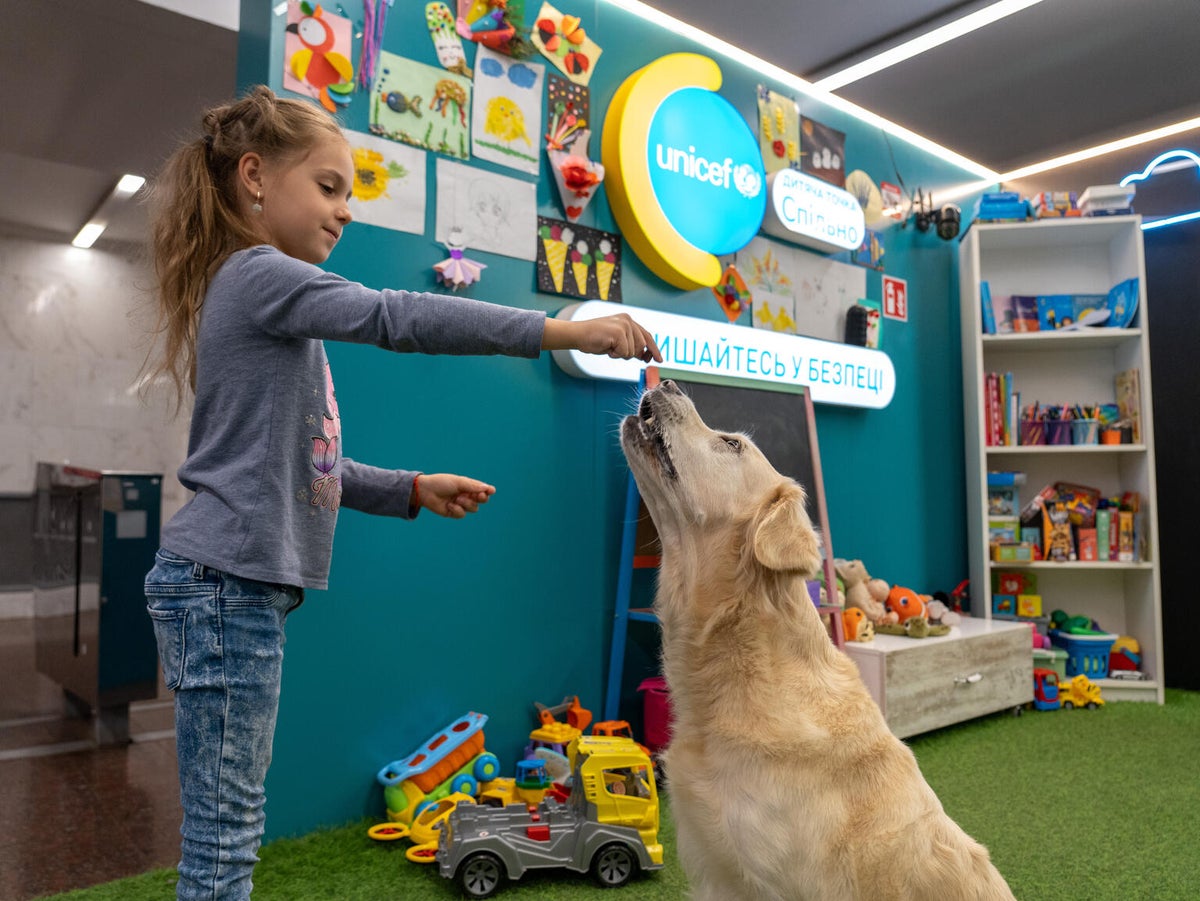
A safe space for children to relax and play
After Victoria and her seven-year-old daughter, Adelina, spent a sleepless night listening to the distressing sounds of shelling and air raid sirens, they decided to go to the UNICEF-supported Spilno Child Spot.
"There was huge shelling at night,” Victoria says. “In the morning, we heard loud explosions too. I wanted to get my daughter distracted from this nightmare. I wanted her to be safe and feel relaxed.”
Spending time in the Spilno Child Spot playing with the dogs has helped Adelina to feel calm. She loves playing with the dogs, who can roll over on command and lie down on their backs to get pats.
"Today, there was a class with dogs, I liked it very, very much. They were very, very fun and playful. They know many commands and are very friendly. They gave me their paws."
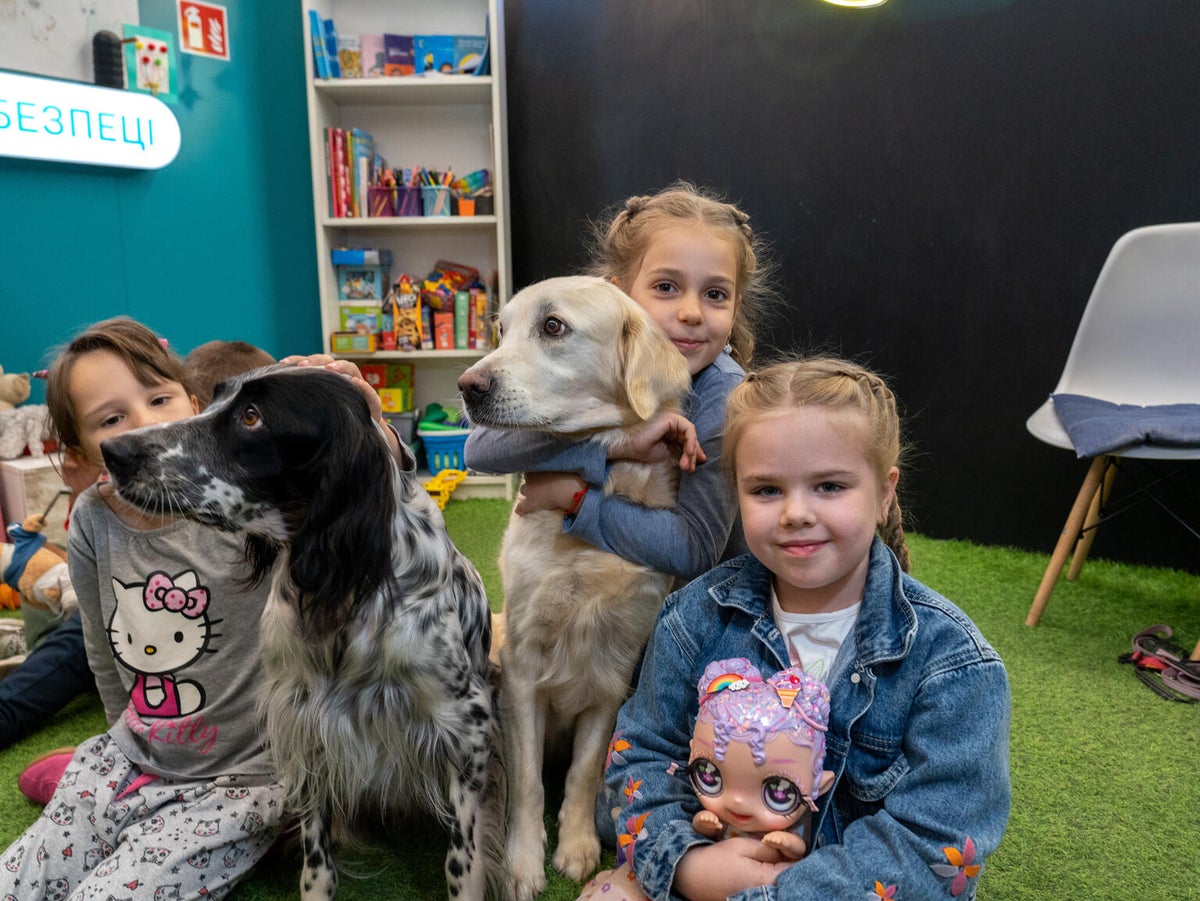
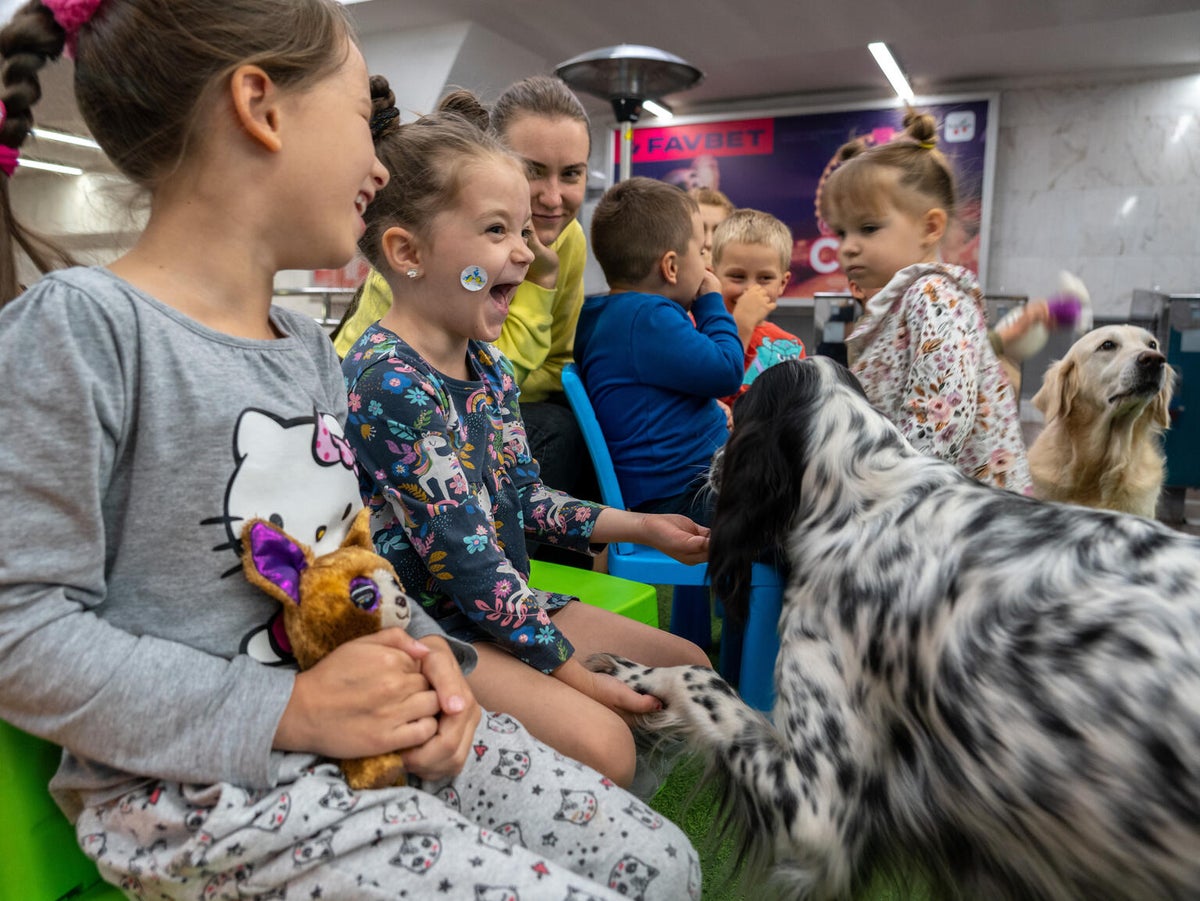
Beyond the fear and sadness, there is hope
Over the past two years, the war in Ukraine has deprived children of their childhood. Bomb shelters have become their playgrounds, screens have replaced their classrooms, and instead of school bells, the piercing sounds of air raid sirens have become a constant feature in their lives. This is having a devastating impact on children’s mental health and wellbeing.
Across the country, parents are reporting that their children are suffering from heightened levels of anxiety, fear, phobias, and sadness, as well as reduced engagement in school, sensitivity to loud noises, and sleep troubles. These are typical signs of post-traumatic stress disorder that if left untreated, can develop into more severe lifelong issues.
But thanks to the kindness and generous support of people like you, UNICEF has been on the ground delivering hope to children in Ukraine.
Children of Ukraine Crisis
After three years of war, children need you more than ever. Donate to UNICEF's ongoing efforts in Ukraine.
Related articles
Stay up-to-date on UNICEF's work in Australia and around the world



